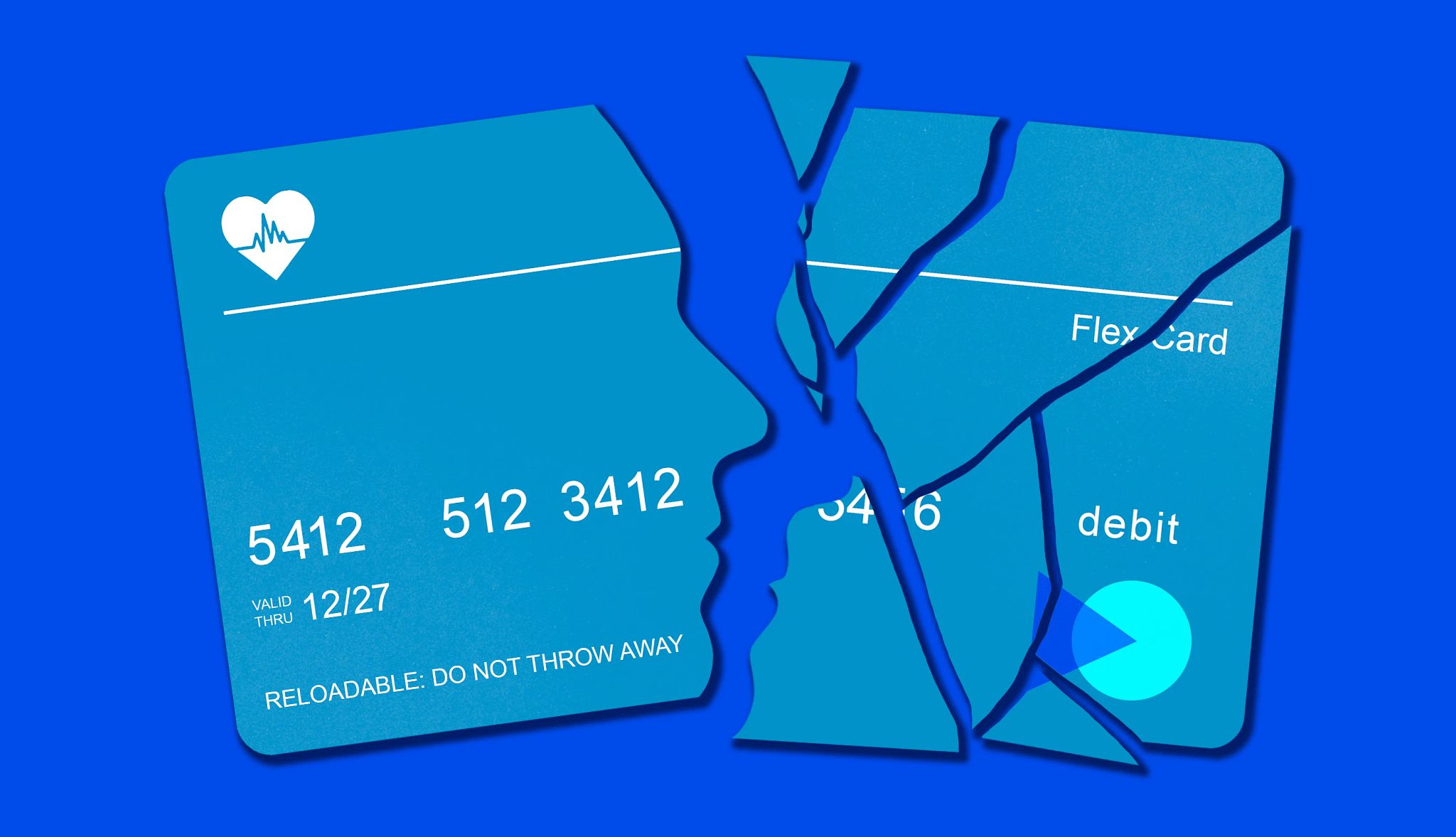AARP Hearing Center


In this story
How scams work • Red flags • Protecting yourself • Reporting scams
You may get a call from someone impersonating a Medicare representative who tries to encourage you to purchase a Medicare flex card. Some of these offers for prepaid debit cards — available through private Medicare Advantage plans — may be legitimate, but sometimes they’re offered by criminals who lure you into sharing personal information they then use to steal your identity or submit fake Medicare claims in your name. Some criminals might take your money without sending you a card, or transfer you into a Medicare Advantage plan without your knowledge.
Jean Stone, who worked for the Centers for Medicare & Medicaid Services (CMS) for 45-plus years, says complaints about flex cards come in more often during open enrollment season. "That's when your current plan can reach out to you and tell you what's better this year than last year and [share] new benefits." Stone is now a volunteer with the Senior Medicare Patrol in New York City, which helps people avoid, detect and report Medicare fraud.


AARP Membership— $12 for your first year when you sign up for Automatic Renewal
Get instant access to members-only products and hundreds of discounts, a free second membership, and a subscription to AARP the Magazine.
How Medicare flex scams work
Even though the cards are called Medicare flex cards, they have nothing to do with original Medicare. They are a benefit provided by private Medicare Advantage plans and distributed to certain eligible members — quarterly or annually — to cover some health-related expenses.
Flex cards can cover over-the-counter medicine and dental care copays and provide a grocery allowance for healthful foods. The benefits sound enticing, something criminals take advantage of in these ways:
Placing false ads. Advertisements may claim that Medicare is giving out flex cards containing several hundred dollars to apply toward food and other items. You may be directed to a website where you’ll be asked to provide personal information that can be stolen, such as a Social Security number, credit card number or bank account information.
Offering a flex card. Impostors posing as government representatives call and ask for your personal information to send you a flex card. If the impostors get your Medicare number during this fake application process, they may use it to steal your identity or file false Medicare claims in your name. This is similar to another common scheme, Medicare card fraud, where criminals call to offer you a new Medicare card to try to get you to provide your personal information, says Kim McKenna, Senior Medicare Patrol (SMP) coordinator for the Washington State Office of the Insurance Commissioner. In both cases, you never receive the card, she says.
Switching you to another plan. Sometimes salespeople call and use flex cards as a way to get Medicare beneficiaries to switch from original Medicare to a Medicare Advantage plan. You may not realize that by agreeing to accept the flex card you are agreeing to let go of your original Medicare coverage and be moved to a private Medicare Advantage plan. The plans have different rules about provider networks, coverage and out-of-pocket costs. Carefully research any plan you are offered before agreeing to a switch.
Warning signs of a Medicare flex card scam
Unsolicited calls from Medicare. You receive an unexpected call from someone claiming to be from Medicare. Medicare will never call you without your request to do so.
Claims that Medicare is issuing the flex card. The ad or caller claims the flex card is from Medicare or the CMS. Medicare doesn’t issue flex cards.
Calls from Medicare Advantage salespeople. People representing Medicare Advantage plans aren’t allowed to call you unless you’re already a member of the plan or you’ve given them permission to contact you.
Claims that you can use the flex card for any purchase. The ad or caller claims you can use the card for any purchase. Medicare Advantage flex cards have specific requirements for use and qualification. Healthy food allowance and some other benefits may only be available for people with chronic conditions, says Tatiana Fassieux, training and education specialist for California Health Advocates and the state’s Senior Medicare Patrol.





























































More from AARP
Feds Crack Down on Medicare Advantage Marketing
Celebrity endorsers must identify whom they represent and not mislead potential MA enrollees
How to Protect Older Loved Ones From Theft and Fraud
Take these steps to stop elder financial exploitation
Medicare Open Enrollment: Everything You Need to Know
When it starts, when it ends, and how it works for original Medicare and Medicare Advantage